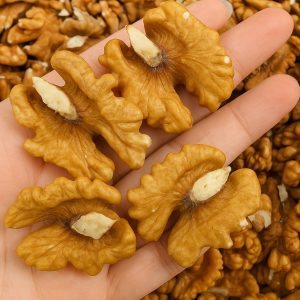Knee cartilage plays a crucial role in joint function by cushioning bones, absorbing shock, and ensuring smooth movement. Over time, aging, injuries, or conditions like osteoarthritis can lead to cartilage deterioration. While cartilage has limited self-repair abilities, maintaining a balanced diet with key nutrients can help support its health and slow down degeneration.
1. Fatty Fish
Fatty fish such as salmon, mackerel, and sardines are rich in omega-3 fatty acids, which have anti-inflammatory properties. These healthy fats may help reduce joint discomfort and support overall cartilage health.
2. Leafy Greens
Vegetables like spinach, kale, and Swiss chard are packed with antioxidants and vitamin C, which play a role in collagen production. Collagen is an important component of cartilage that contributes to its strength and flexibility.
3. Berries

Berries such as blueberries, strawberries, and raspberries are loaded with antioxidants, including vitamin C. These nutrients help protect joints from oxidative stress, which can contribute to cartilage wear over time.
4. Nuts and Seeds
Nuts and seeds like almonds, walnuts, and flaxseeds provide omega-3 fatty acids, vitamin E, and magnesium. These nutrients may help reduce inflammation and support overall joint health.
5. Citrus Fruits
Citrus fruits like oranges, lemons, and grapefruits are excellent sources of vitamin C, which is essential for collagen production. Collagen is a key structural component of cartilage, helping maintain its integrity.
6. Garlic

Garlic contains sulfur compounds that have been associated with anti-inflammatory properties. Including garlic in your diet may support overall joint health.
7. Olive Oil
Olive oil is high in healthy monounsaturated fats and contains compounds with anti-inflammatory effects. Regular consumption may help promote joint flexibility and reduce oxidative stress.
8. Legumes

Legumes such as beans, lentils, and chickpeas are good sources of plant-based protein, fiber, and essential minerals like magnesium. These nutrients contribute to overall joint and muscle health, which can help support knee function.
Conclusion
While no single food can regenerate cartilage, a nutrient-rich diet can play a role in supporting knee health and slowing down cartilage deterioration. In addition to proper nutrition, maintaining a healthy weight, engaging in regular low-impact exercise, staying hydrated, and avoiding smoking can contribute to better joint function. Prioritizing these lifestyle habits can help protect and support knee cartilage over time.





